 Shutterstock
Shutterstock
Dogs are naturally curious about what we eat, and many pet owners wonder if it’s safe to share human food with their pets. While it’s crucial to maintain a balanced diet with high-quality dog food, several human foods are not only safe for dogs. Still, they can also offer nutritional benefits when given in moderation. However, it’s essential to know which foods are healthy and which should be avoided. By being mindful of what you offer, you can safely add variety to your dog’s diet while keeping them healthy.
Apples
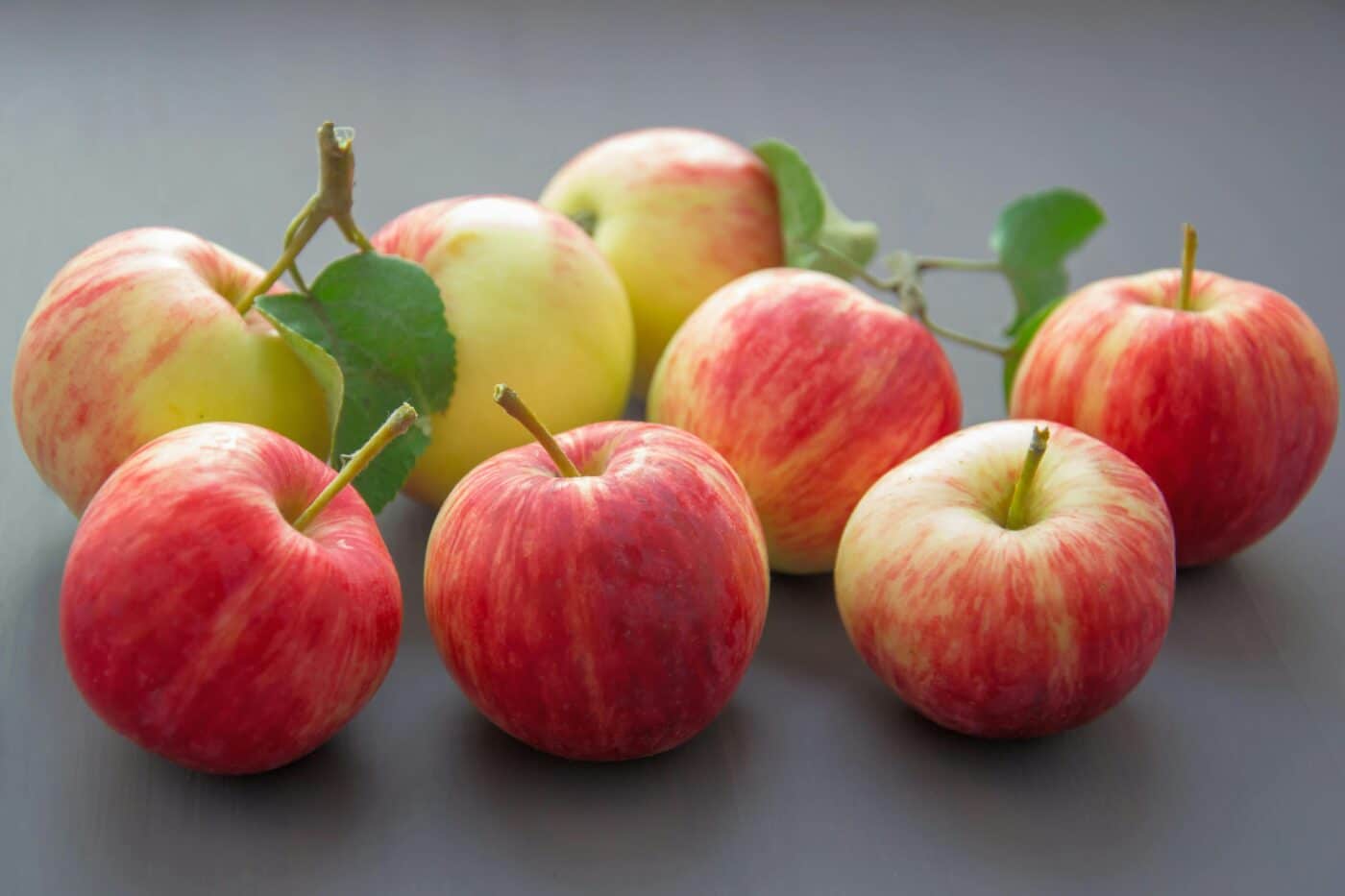 Shutterstock
Shutterstock
Apples are a healthy and safe snack for dogs, offering a variety of benefits. Packed with vitamins A and C, they can help support a dog’s immune system and promote good eye health. Apples also provide fiber, which aids digestion and helps maintain a healthy weight. Be sure to remove the seeds and core before offering apples to your dog, as these parts contain small amounts of cyanide and pose a choking hazard. Sliced apples can be a crunchy, refreshing treat that many dogs enjoy, especially in hot weather.
Carrots
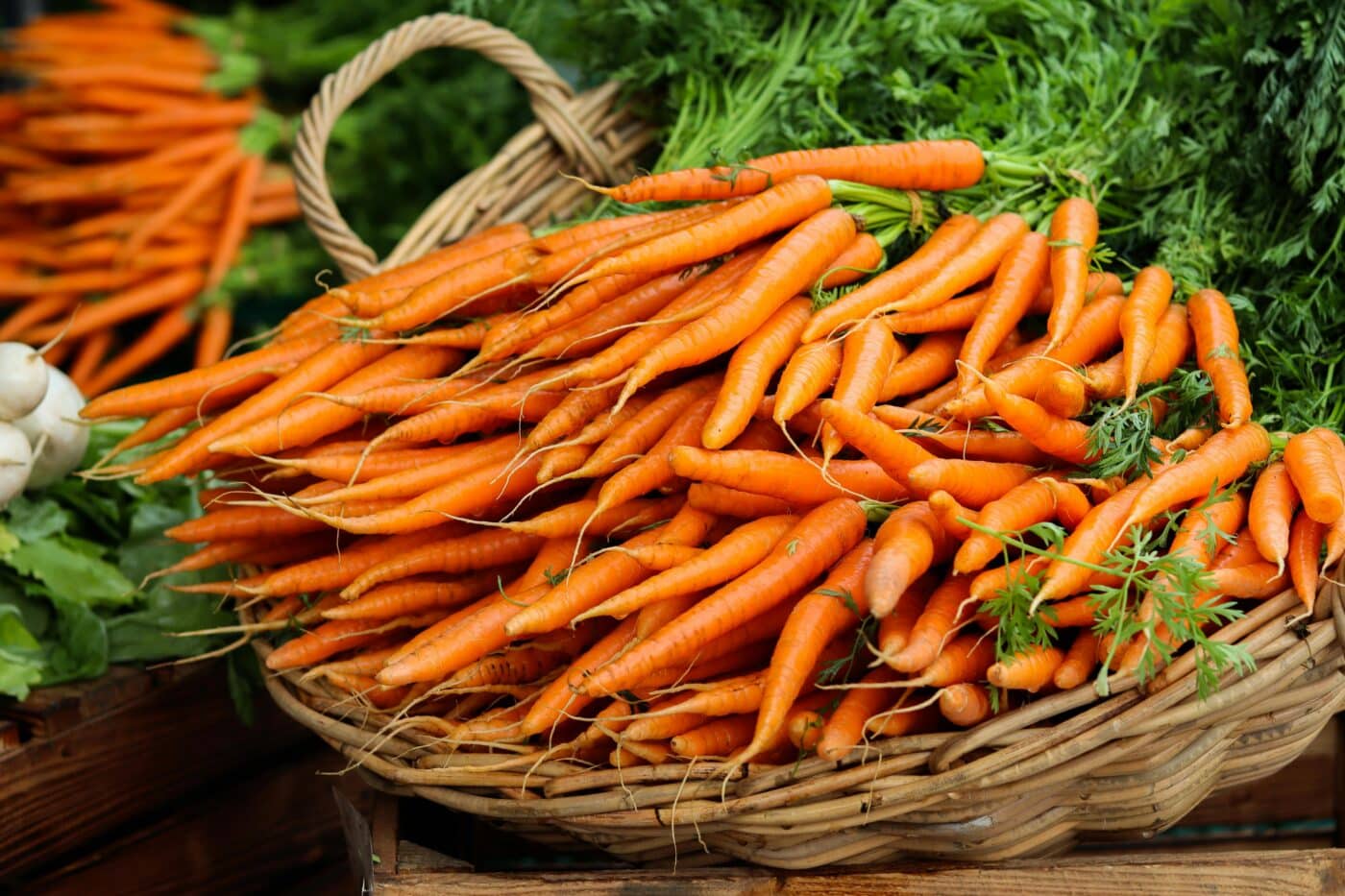 Shutterstock
Shutterstock
Carrots are another great option for dogs, offering a low-calorie snack that’s rich in vitamins and fiber. Carrots are packed with beta-carotene, which supports vision, immune function, and skin health. They also act as a natural toothbrush, helping to clean your dog’s teeth and improve dental health as they chew. Carrots can be served raw or cooked, depending on your dog’s preference, and are a healthy, crunchy treat that works well for training or simply as a snack between meals.
Pumpkin
 Shutterstock
Shutterstock
Pumpkin is a fantastic food for dogs, particularly when it comes to promoting digestive health. It is rich in fiber and can help with both constipation and diarrhea, regulating bowel movements and soothing an upset stomach. Pumpkin is also loaded with vitamins A, E, and C, along with potassium and iron. Make sure to use plain, cooked pumpkin with no added spices or sugar when serving it to your dog. Canned pumpkin is an easy and convenient option that many pet owners use to support their dog’s digestive system.
Peanut Butter
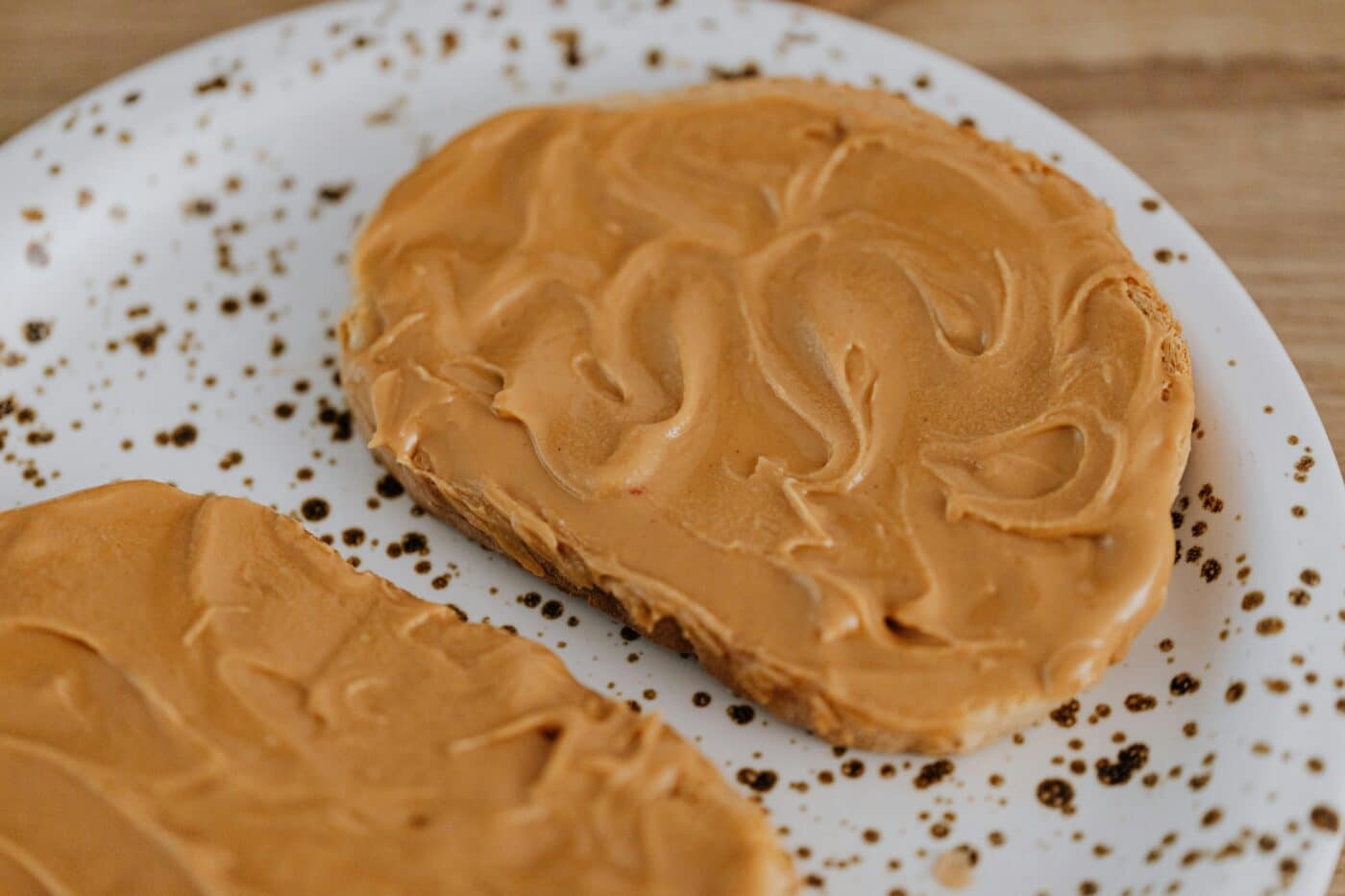 Shutterstock
Shutterstock
Most dogs go wild for peanut butter, and the good news is that it’s generally safe for them in moderation. Peanut butter is a good source of protein, healthy fats, and vitamins B and E. It’s important to choose peanut butter that does not contain xylitol, a sugar substitute that is highly toxic to dogs. Peanut butter can be used as a tasty filler for toys like Kongs or spread on dog treats. It’s a great way to give your dog a satisfying treat while also keeping them busy.
Blueberries
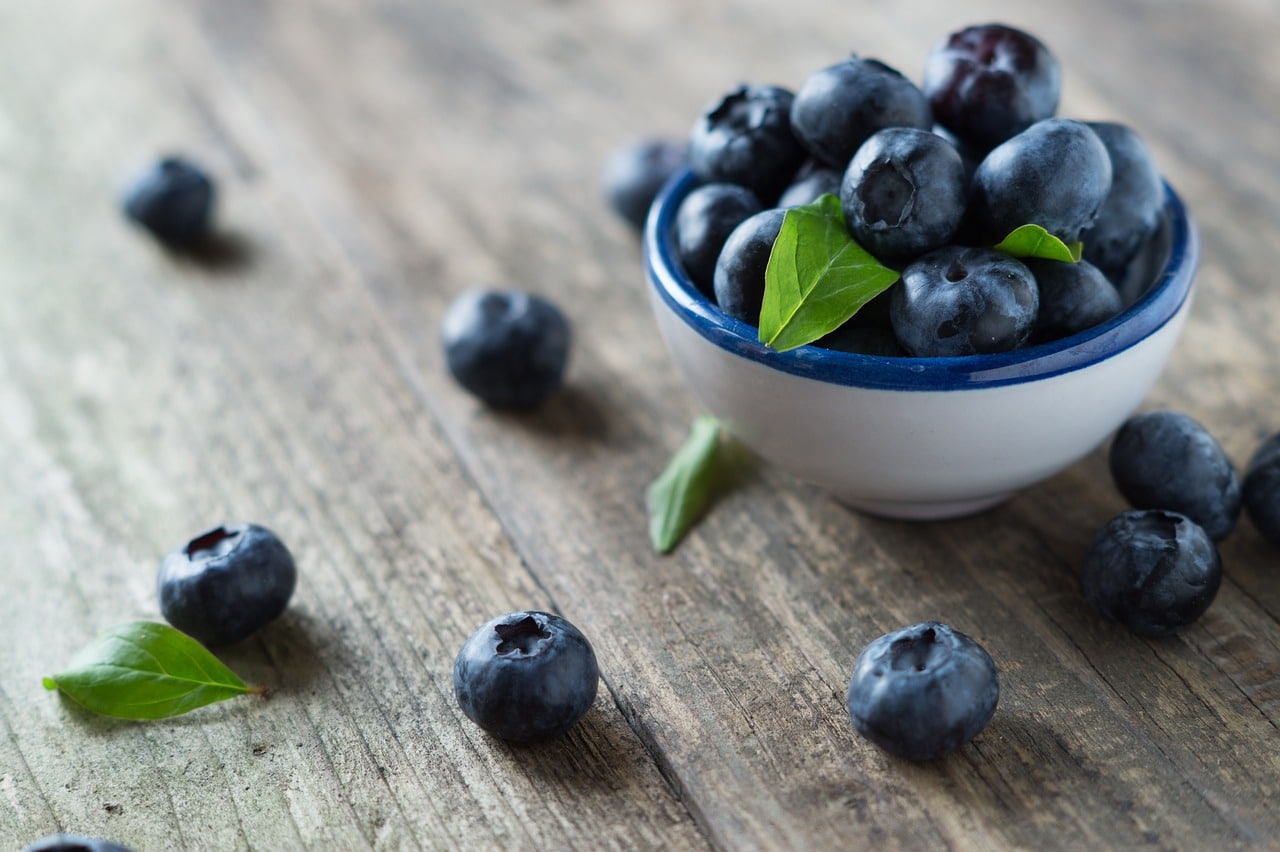 Shutterstock
Shutterstock
Blueberries are a superfood that provides dogs with a healthy dose of antioxidants, vitamins, and fiber. These small, tasty fruits are great for boosting your dog’s immune system and supporting overall health. Blueberries can help reduce the risk of chronic diseases due to their high antioxidant content, and they make an easy, mess-free treat that dogs love. Whether served fresh or frozen, blueberries are a nutritious addition to your dog’s diet and are perfect for training sessions due to their size.
Sweet Potatoes
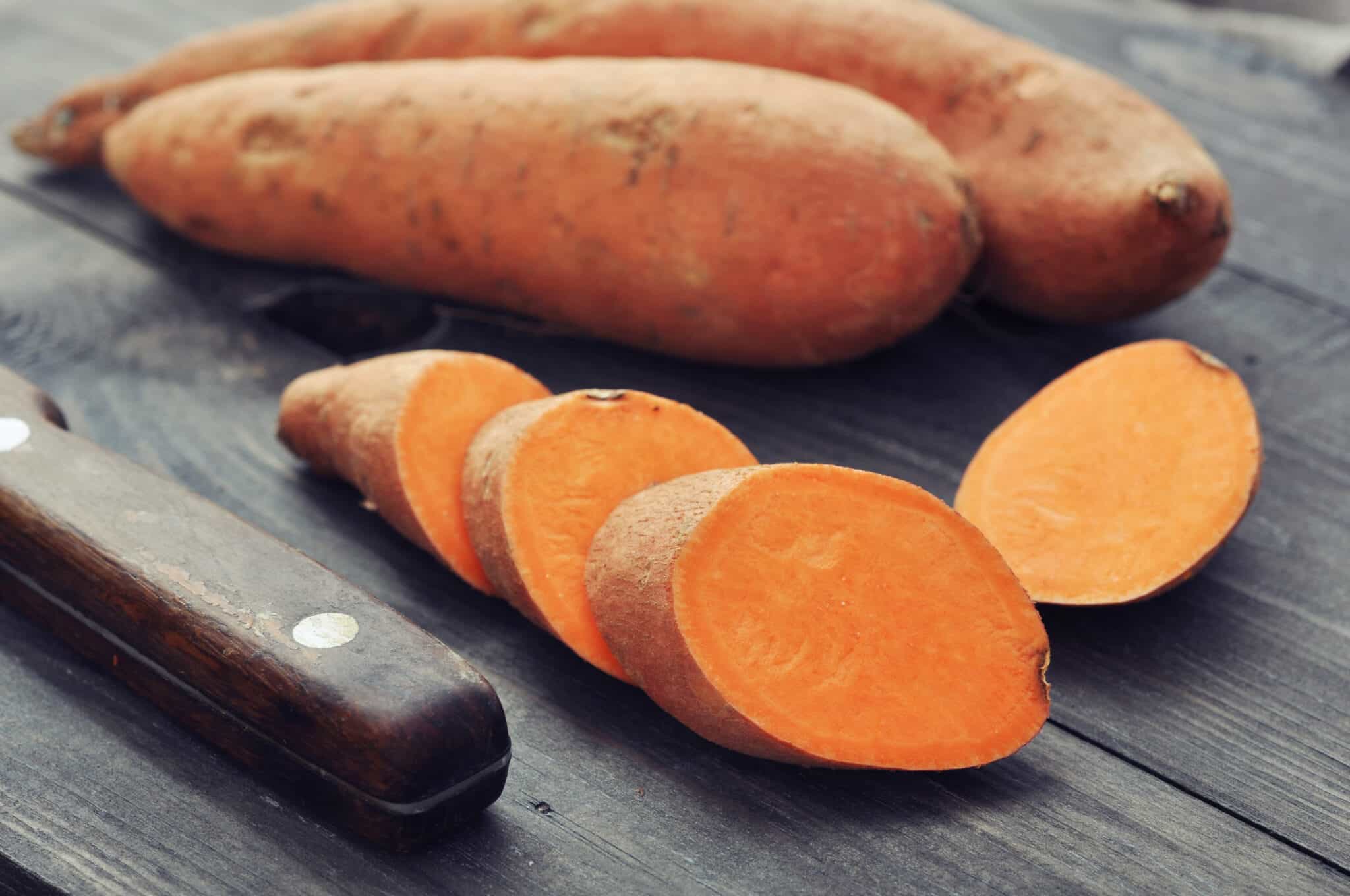 Shutterstock
Shutterstock
Sweet potatoes are another excellent food choice for dogs, offering a rich source of dietary fiber, vitamins A, C, and B6, as well as minerals like potassium and calcium. Sweet potatoes are highly digestible and can be helpful in promoting gut health, making them a good option for dogs with digestive issues. Serve them cooked and plain, either mashed or in small bite-sized pieces. Sweet potatoes can also serve as a healthier alternative to commercial dog treats, providing your dog with a natural, nutrient-dense snack.
Eggs
 Shutterstock
Shutterstock
Eggs are a complete protein source and contain essential amino acids, making them a healthy option for dogs. They are also rich in vitamins such as A, D, and E, and minerals like iron and selenium. Eggs can help support healthy skin, a shiny coat, and strong muscles. Serve them cooked—whether scrambled, boiled, or poached—without adding any oils or seasonings. Raw eggs, while sometimes fed to dogs, can carry the risk of salmonella, so it’s generally safer to cook them before serving.
Salmon
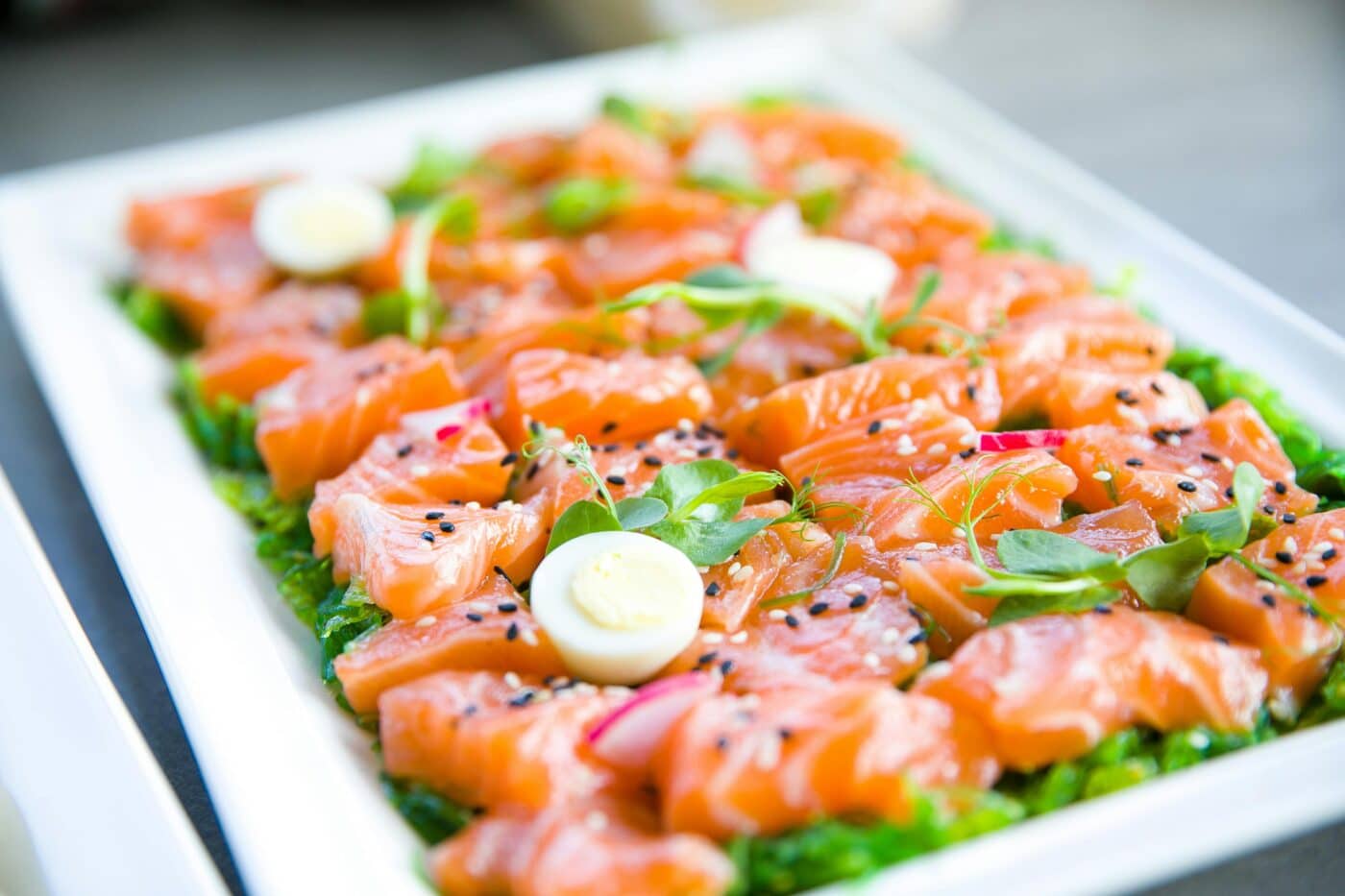 Shutterstock
Shutterstock
Salmon is packed with omega-3 fatty acids, which are excellent for maintaining healthy skin and a shiny coat in dogs. These fatty acids also support heart health and can help reduce inflammation, making salmon beneficial for dogs with arthritis or joint pain. Serve salmon cooked and boneless to avoid the risk of choking or internal injury. Avoid seasoning the fish with any spices, and stay away from smoked or canned salmon, as these can contain high levels of salt and preservatives.
Green Beans
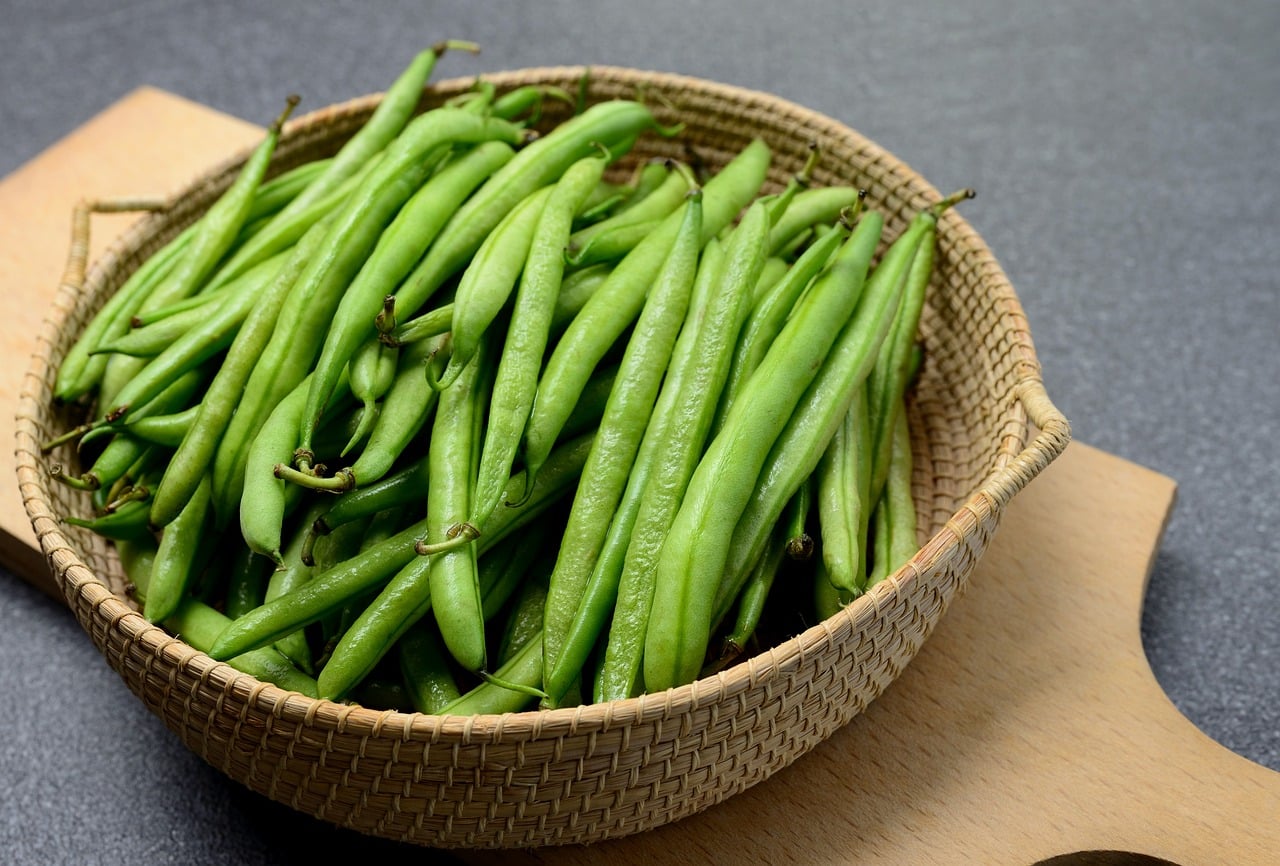 Shutterstock
Shutterstock
Green beans are a healthy, low-calorie option for dogs, providing fiber, vitamins, and minerals such as vitamins A, C, and K, as well as folic acid and iron. Green beans are a great snack, particularly for dogs who need to lose weight, as they help dogs feel full without adding a lot of calories. Serve them cooked and plain, without any added salt, butter, or seasoning. Whether steamed or blanched, green beans can be a crunchy, nutritious treat that supports your dog’s overall health.
Oatmeal
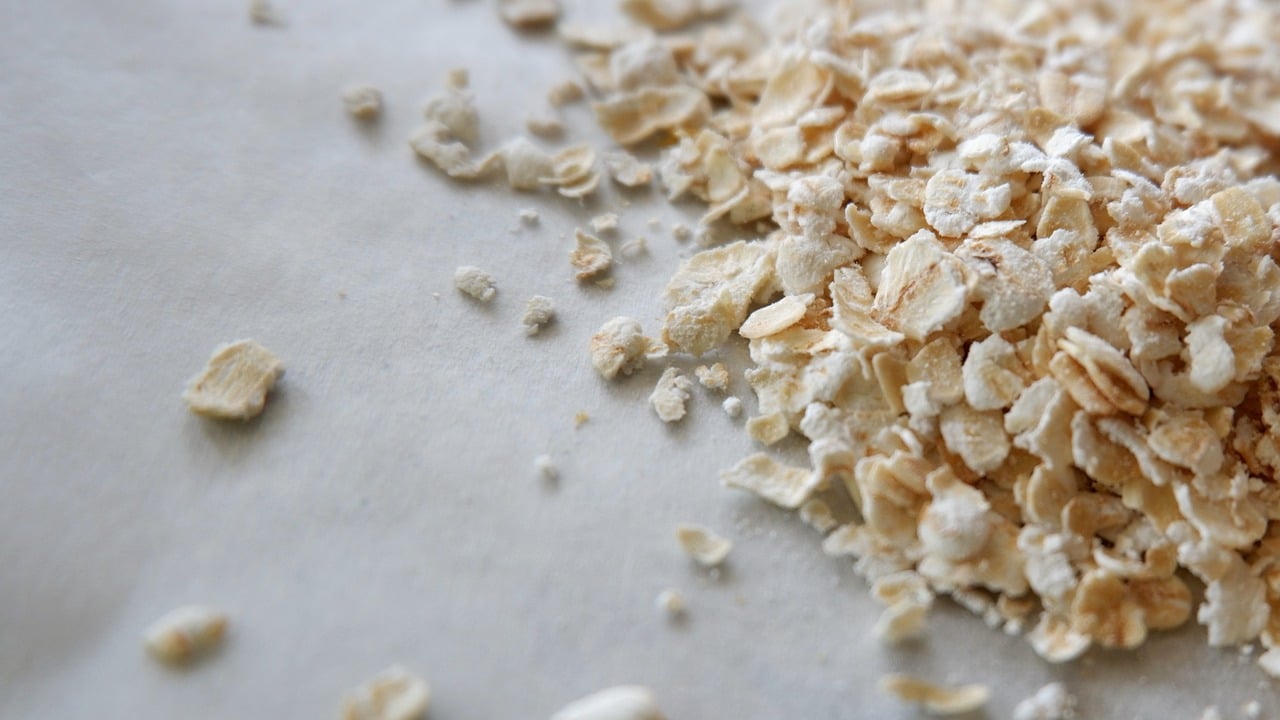 Shutterstock
Shutterstock
Oatmeal is a good source of fiber, particularly beneficial for dogs with digestive issues or irregular bowel movements. It also contains vitamins, minerals, and antioxidants that support skin health and digestion. Oatmeal can be a good alternative grain for dogs who are allergic to wheat or other grains. Be sure to serve it plain, with no added sugar or flavorings, and allow it to cool before giving it to your dog. Oatmeal is a hearty and filling food that can be mixed with dog food for added nutritional benefits.
Plain Yogurt
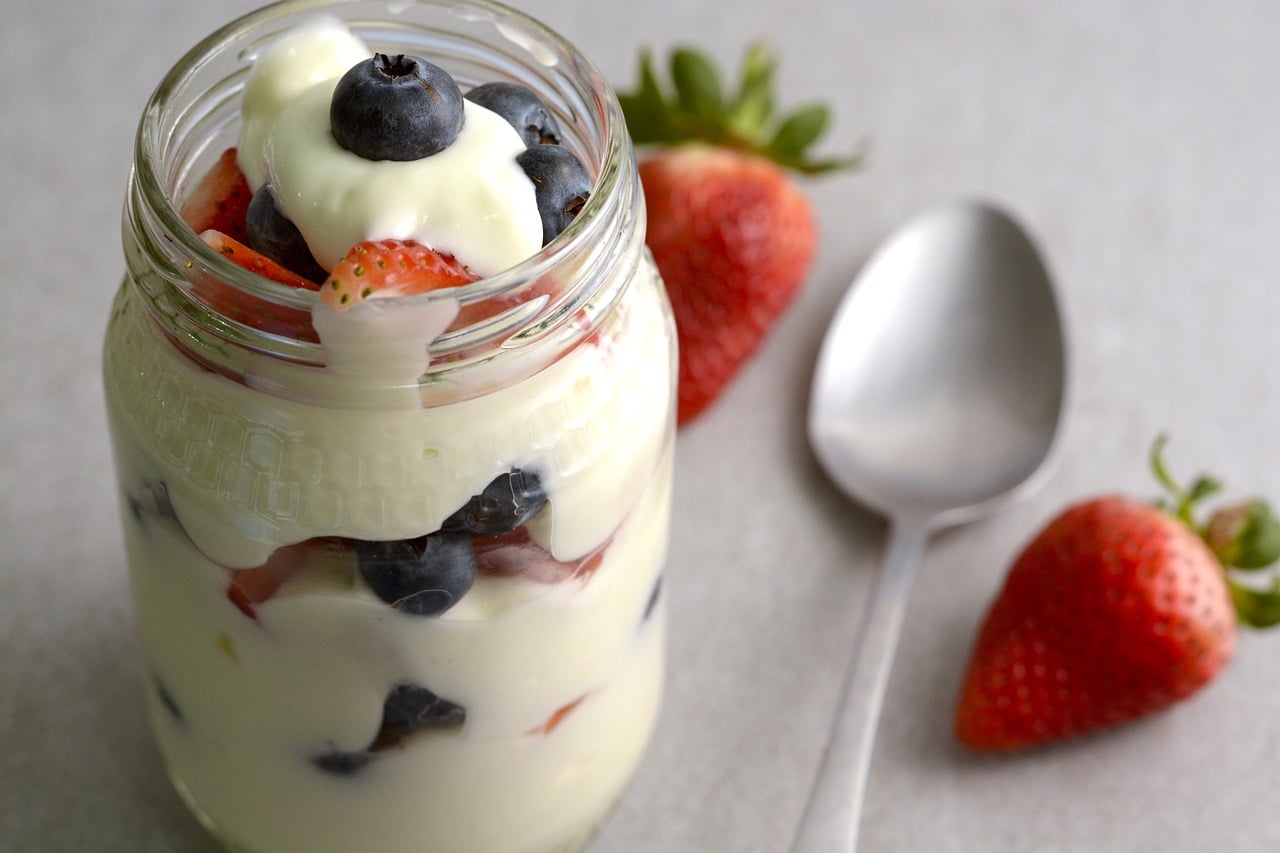 Shutterstock
Shutterstock
Plain yogurt, especially those containing live probiotics, can be a beneficial food for dogs, promoting digestive health and supporting a balanced gut microbiome. It’s rich in calcium and protein, but you should avoid flavored or sweetened yogurts, particularly those containing artificial sweeteners like xylitol, which is toxic to dogs. Yogurt can help soothe upset stomachs and is a great way to add probiotics to your dog’s diet. Serve it in moderation, as too much dairy can lead to digestive issues in some dogs.
Cottage Cheese
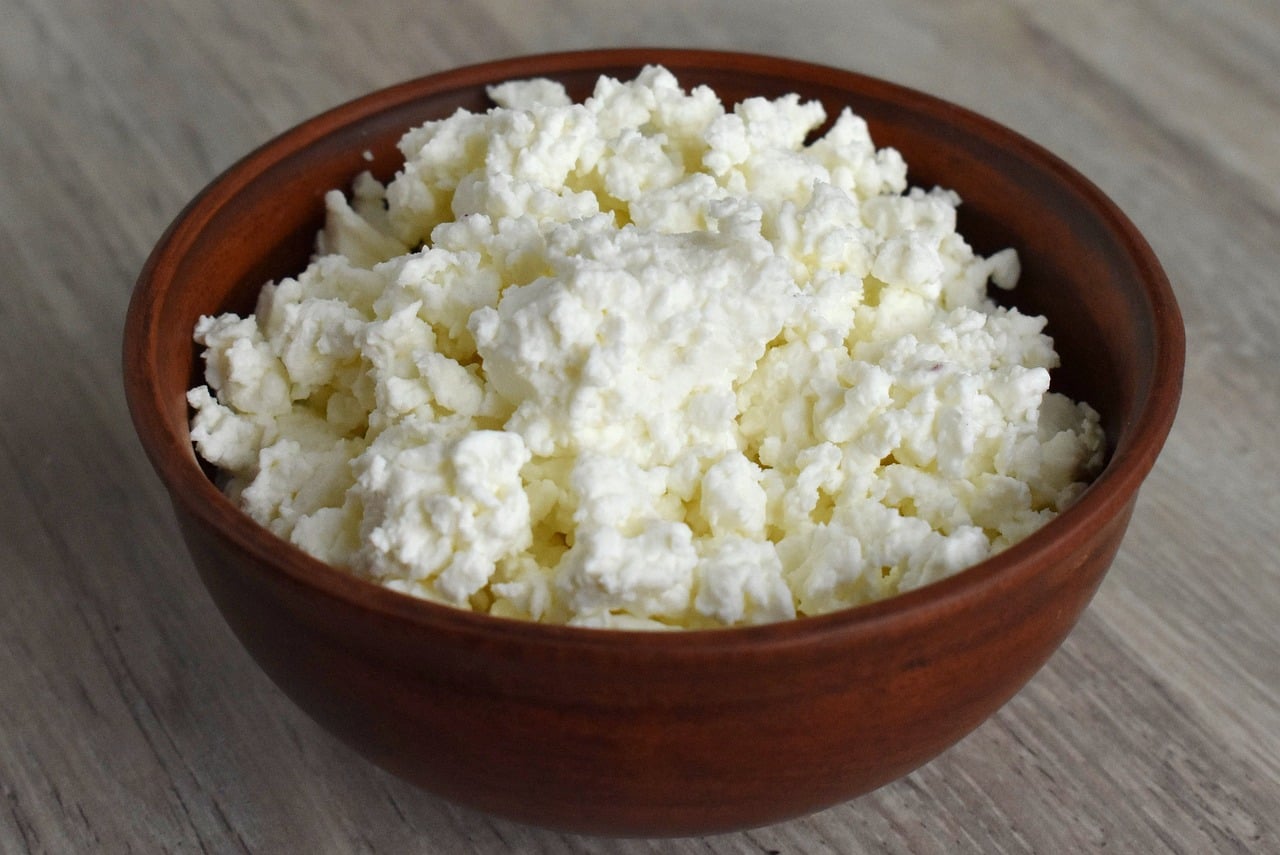 Shutterstock
Shutterstock
Cottage cheese is another dairy product that can be a safe and healthy option for dogs in moderation. It’s a good source of protein, calcium, and essential nutrients that support muscle growth and bone health. Because cottage cheese is relatively low in lactose compared to other dairy products, many dogs can tolerate it well. However, if your dog is lactose intolerant, it’s best to avoid it. Serve plain, unsalted cottage cheese as a treat or mix it with their regular dog food for a nutritional boost.
Cucumbers
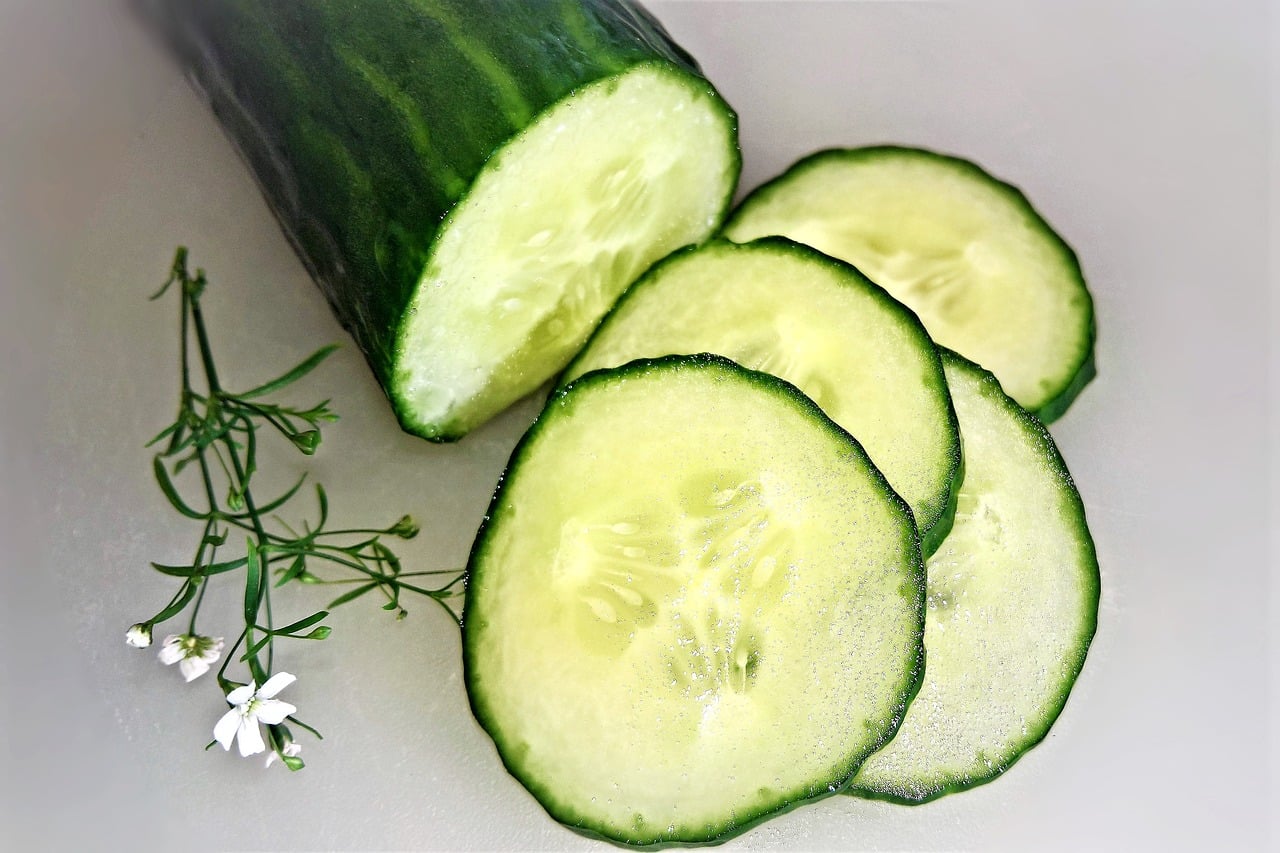 Shutterstock
Shutterstock
Cucumbers are a low-calorie snack that can help keep dogs hydrated, especially during hot weather. They’re rich in vitamins like K, C, and B1, along with potassium, magnesium, and fiber. Cucumbers are also low in sugar and fat, making them an excellent option for dogs who need to watch their weight. Slice them into small, easy-to-chew pieces for a refreshing, crunchy snack. Cucumbers provide hydration and nutrients while being gentle on your dog’s stomach.
Spinach
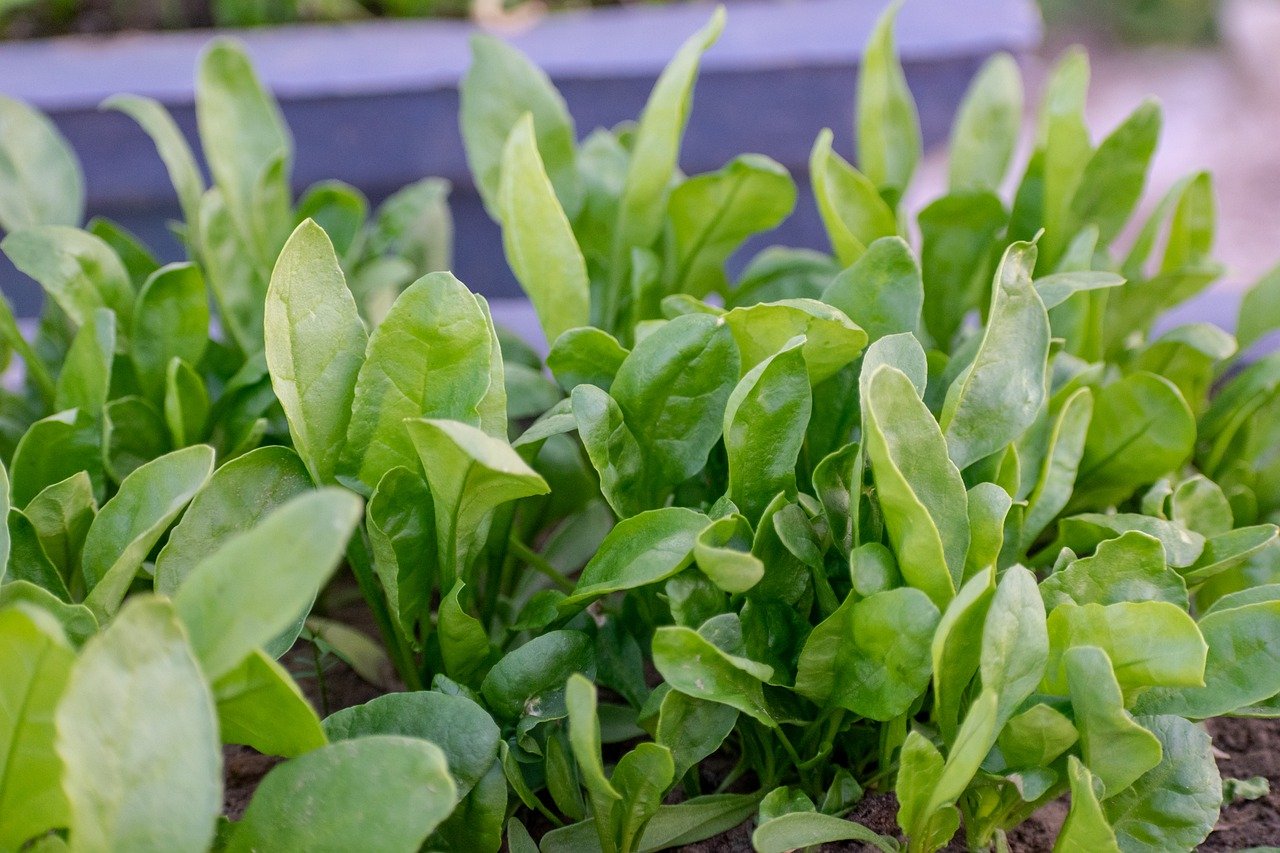 Shutterstock
Shutterstock
Spinach is packed with nutrients that can benefit your dog’s health, including vitamins A, C, K, and iron. It’s great for promoting bone health, as well as supporting your dog’s immune system. However, spinach also contains oxalates, which can interfere with calcium absorption in large amounts. For this reason, spinach should be offered in moderation. Lightly steam the spinach and serve it plain without any added seasoning. When given occasionally, spinach can be a nutritious addition to your dog’s diet.
Bananas
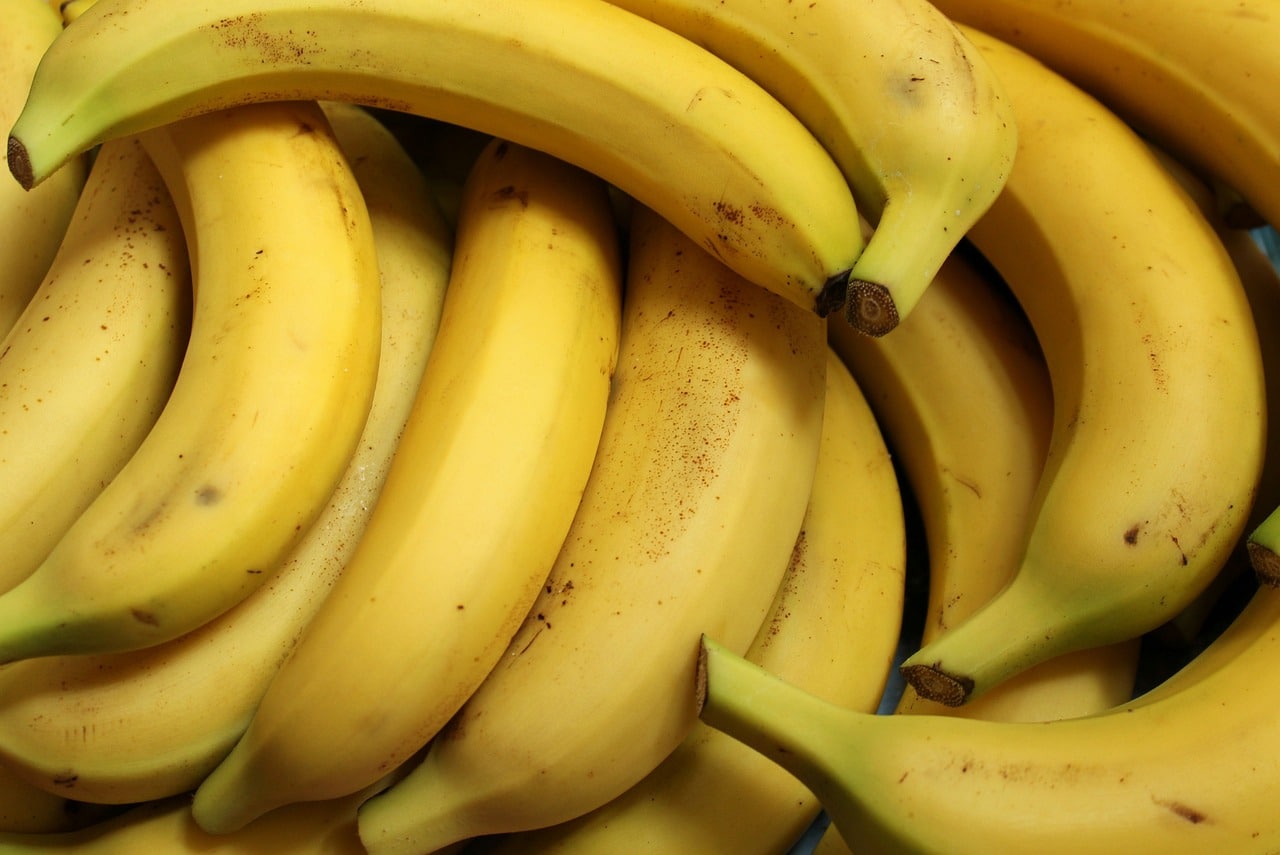 Shutterstock
Shutterstock
Bananas are a sweet and nutritious treat for dogs, offering a source of vitamins, fiber, and potassium. They can support heart health, digestion, and muscle function in dogs. Bananas are also low in calories, making them a healthy snack choice. Serve them in small, bite-sized pieces, or mash them and add to your dog’s food. While bananas are healthy, they are high in sugar, so they should be offered in moderation to avoid any digestive upset or weight gain.
Watermelon
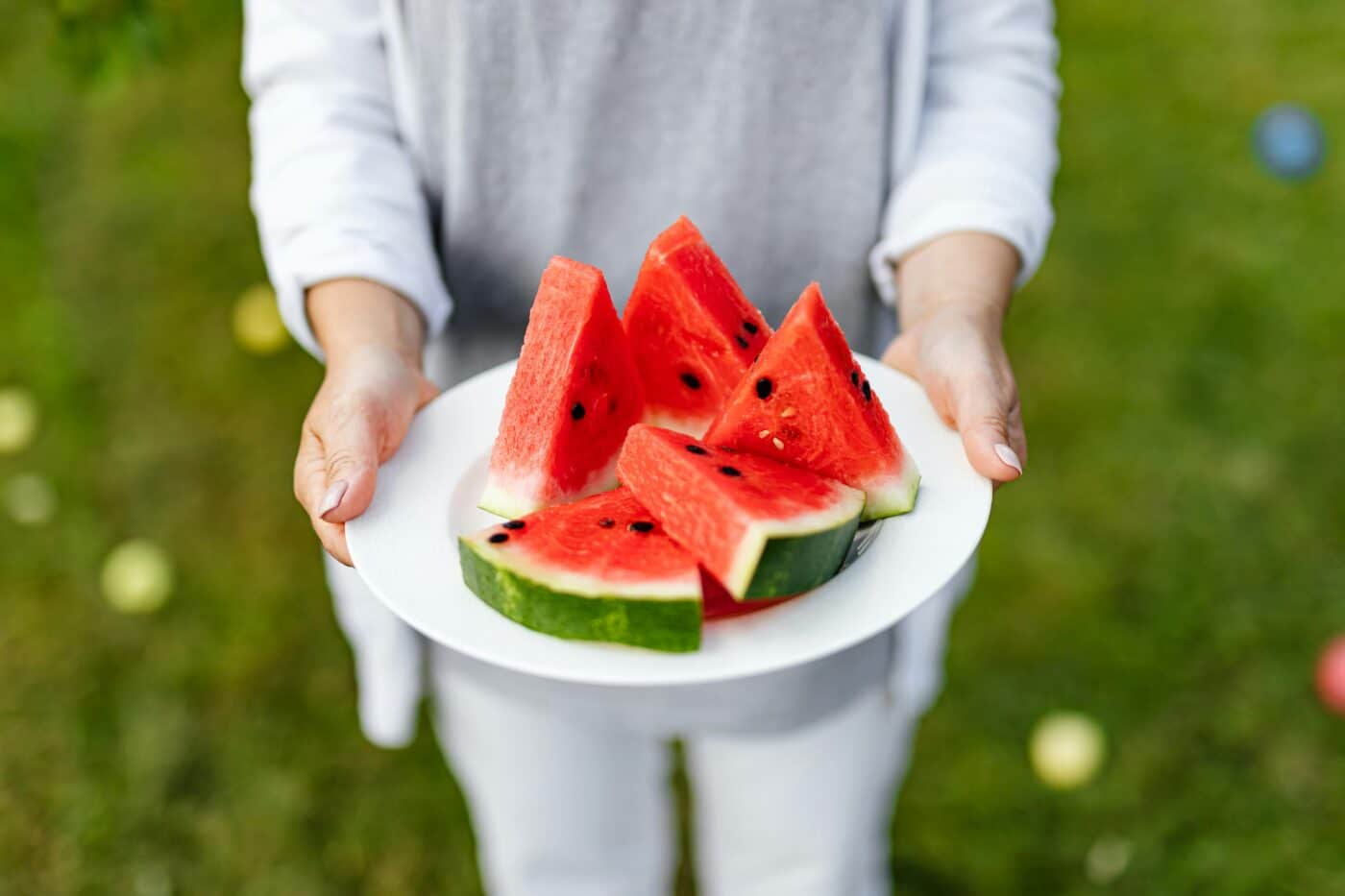 Shutterstock
Shutterstock
Watermelon is a hydrating and refreshing treat for dogs, especially during hot summer months. It’s packed with vitamins A, B6, and C, and is low in calories, making it a great option for overweight dogs. Watermelon is also rich in lycopene, an antioxidant that helps fight free radicals. Be sure to remove the seeds and rind before giving watermelon to your dog, as they can cause digestive blockages. A few bite-sized chunks of watermelon can be a fun and nutritious treat.
Broccoli
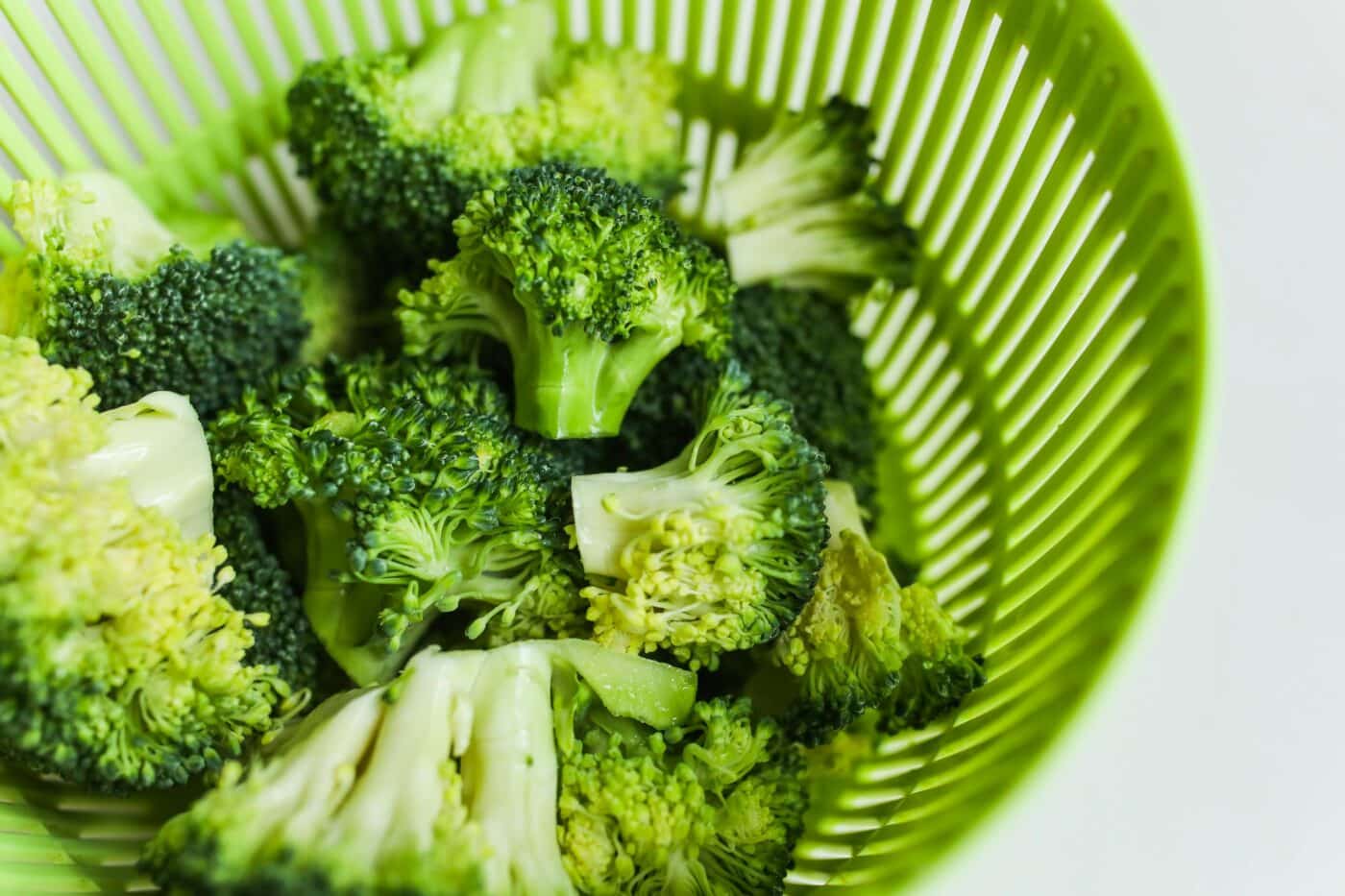 Shutterstock
Shutterstock
Broccoli is a healthy vegetable that can provide dogs with fiber and essential vitamins such as C and K. It also contains beneficial compounds like sulforaphane, which has anti-inflammatory properties. However, broccoli should be served in small amounts, as too much can cause digestive upset in some dogs due to its high fiber content. Steamed or raw broccoli can be offered as a crunchy snack, and its low-calorie content makes it ideal for dogs who need to maintain a healthy weight.
Celery
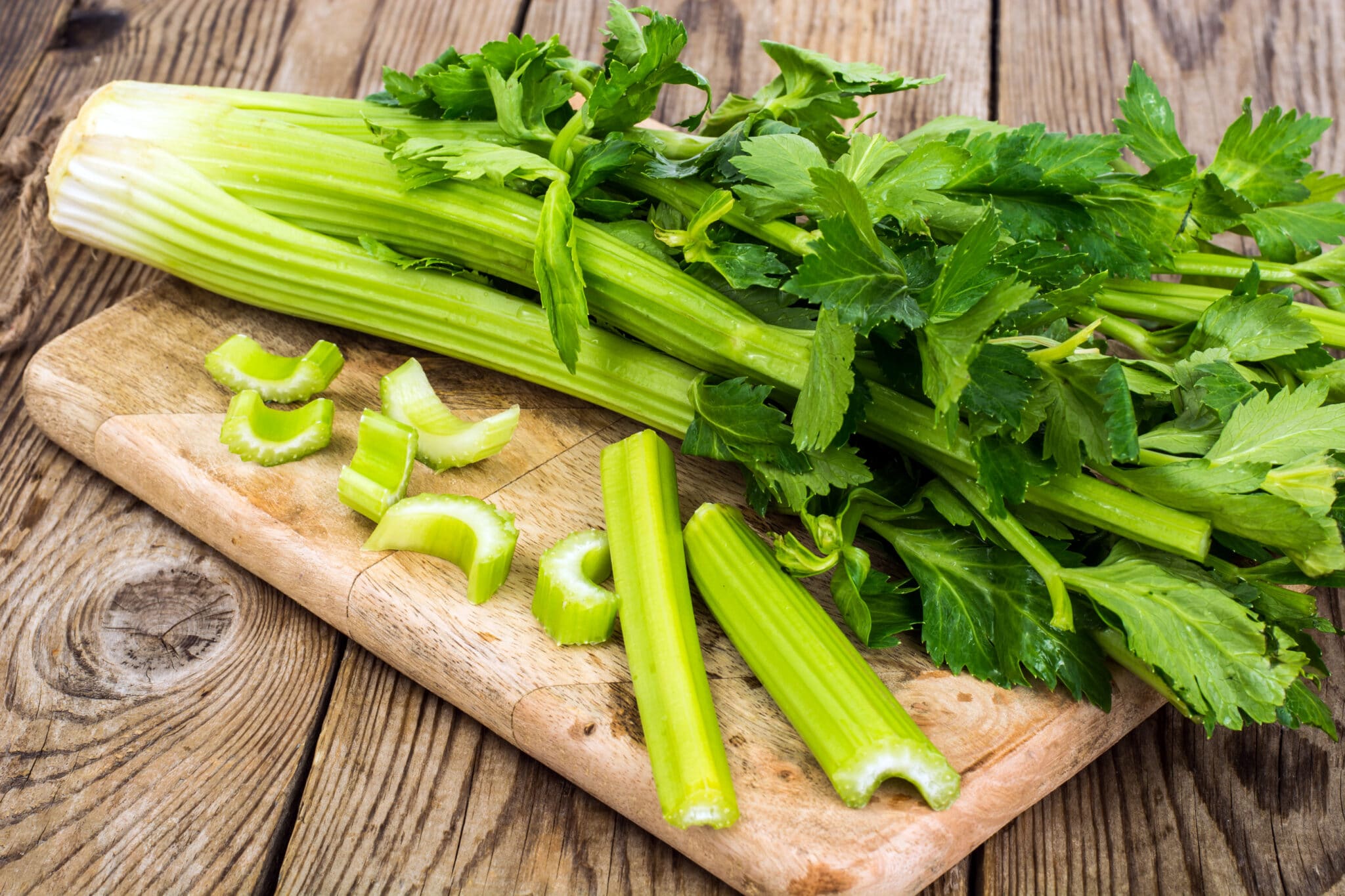 Shutterstock
Shutterstock
Celery is a low-calorie snack that’s safe for dogs and can even freshen their breath. It’s a good source of fiber, vitamins A, C, and K, and minerals like potassium. Celery also has antioxidant properties, making it a healthy addition to your dog’s diet. The crunchy texture of celery can help support dental health by scraping away plaque as your dog chews. Be sure to cut it into small, manageable pieces to prevent choking, especially for smaller dogs.
Pears
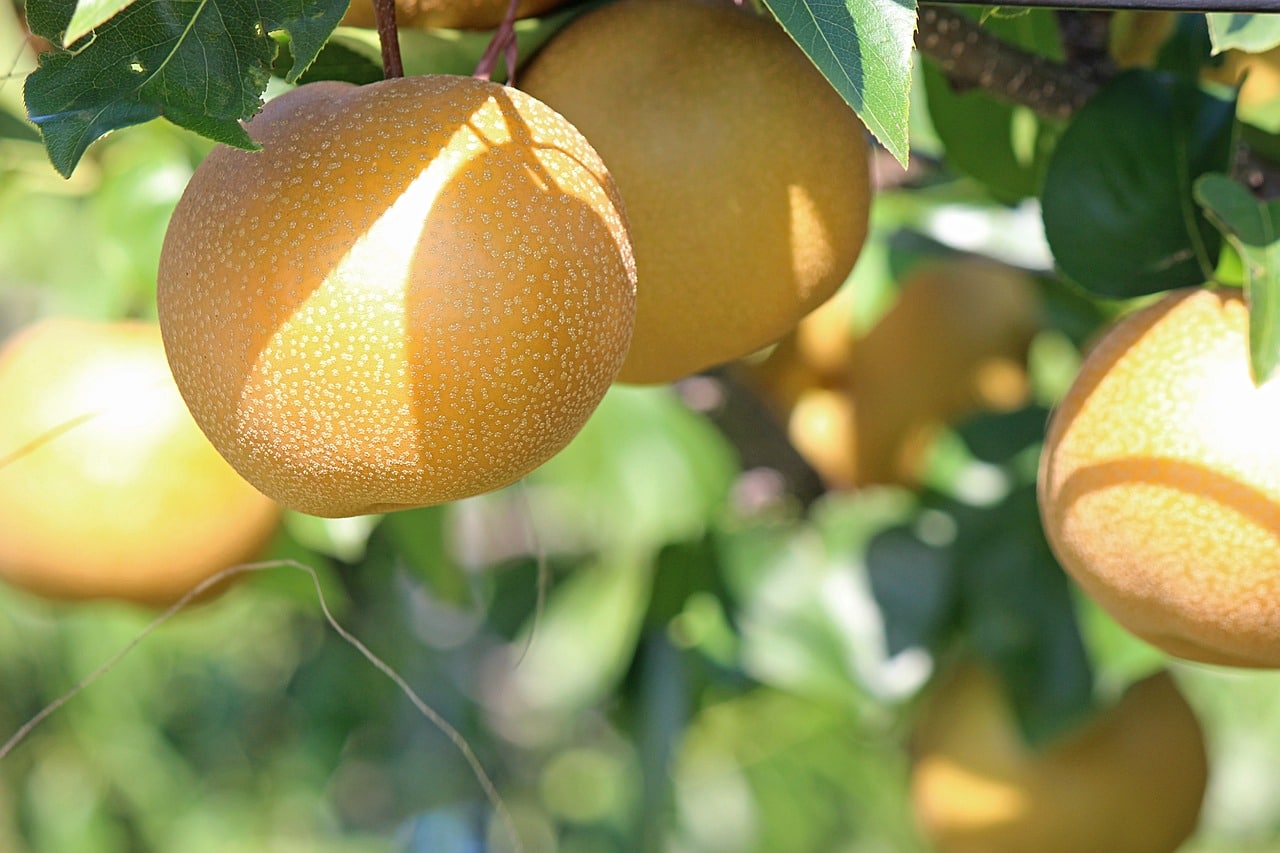 Shutterstock
Shutterstock
Pears are another fruit that dogs can safely enjoy in moderation. Rich in fiber, vitamins C and K, and copper, pears can support your dog’s digestive health and immune system. As with other fruits, make sure to remove the seeds, core, and stem before feeding pears to your dog, as these parts can be toxic. Pears are low in calories and provide a sweet, refreshing snack for dogs on hot days, making them a great treat for dogs with a sweet tooth.
Mango
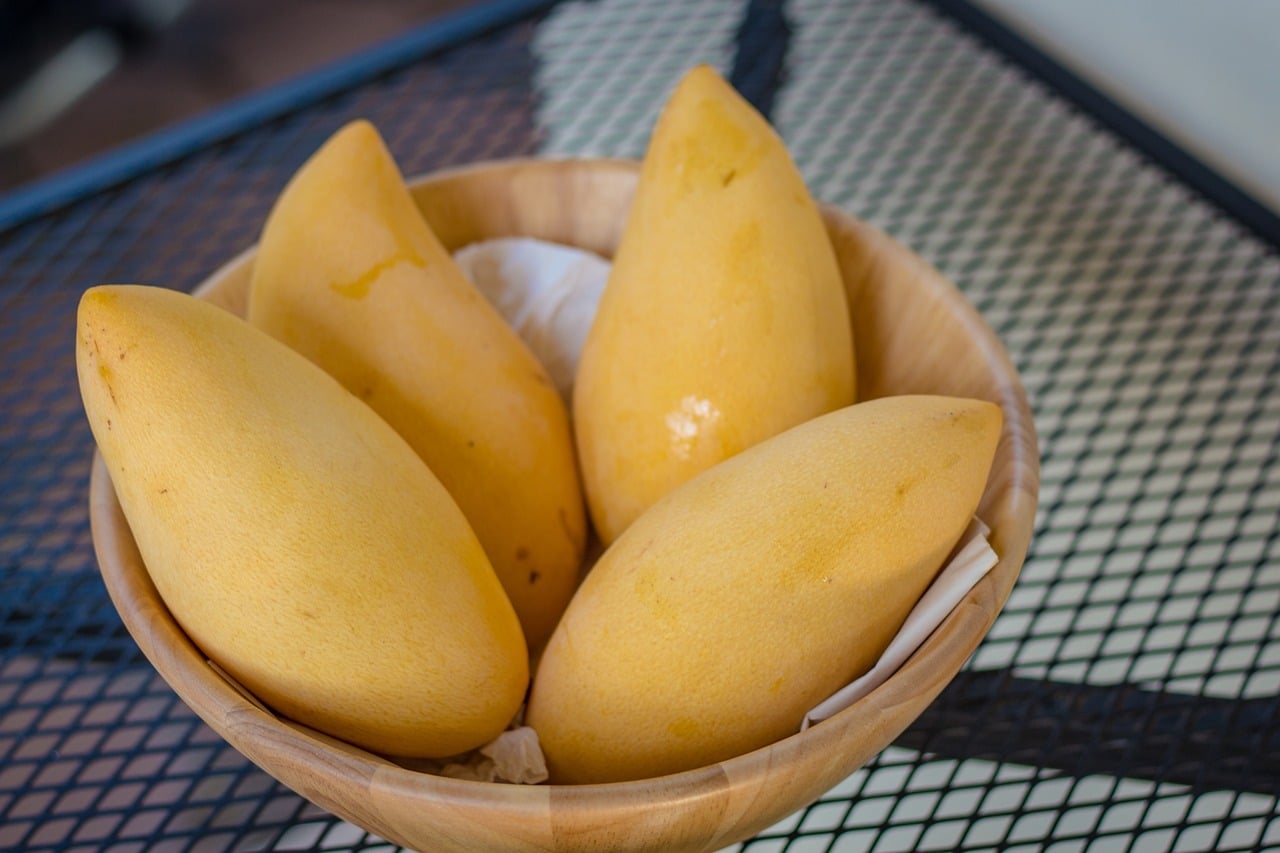 Shutterstock
Shutterstock
Mango is a delicious and nutritious fruit that dogs can enjoy as a treat. It’s rich in vitamins A, C, and E, as well as antioxidants that help support immune function. Mangoes also provide dietary fiber, which can aid in digestion. Be sure to remove the pit, as it contains cyanide, and cut the flesh into small, easy-to-chew pieces. While mangoes are healthy, they are high in sugar, so they should only be given in moderation to avoid weight gain or digestive issues.
Peas
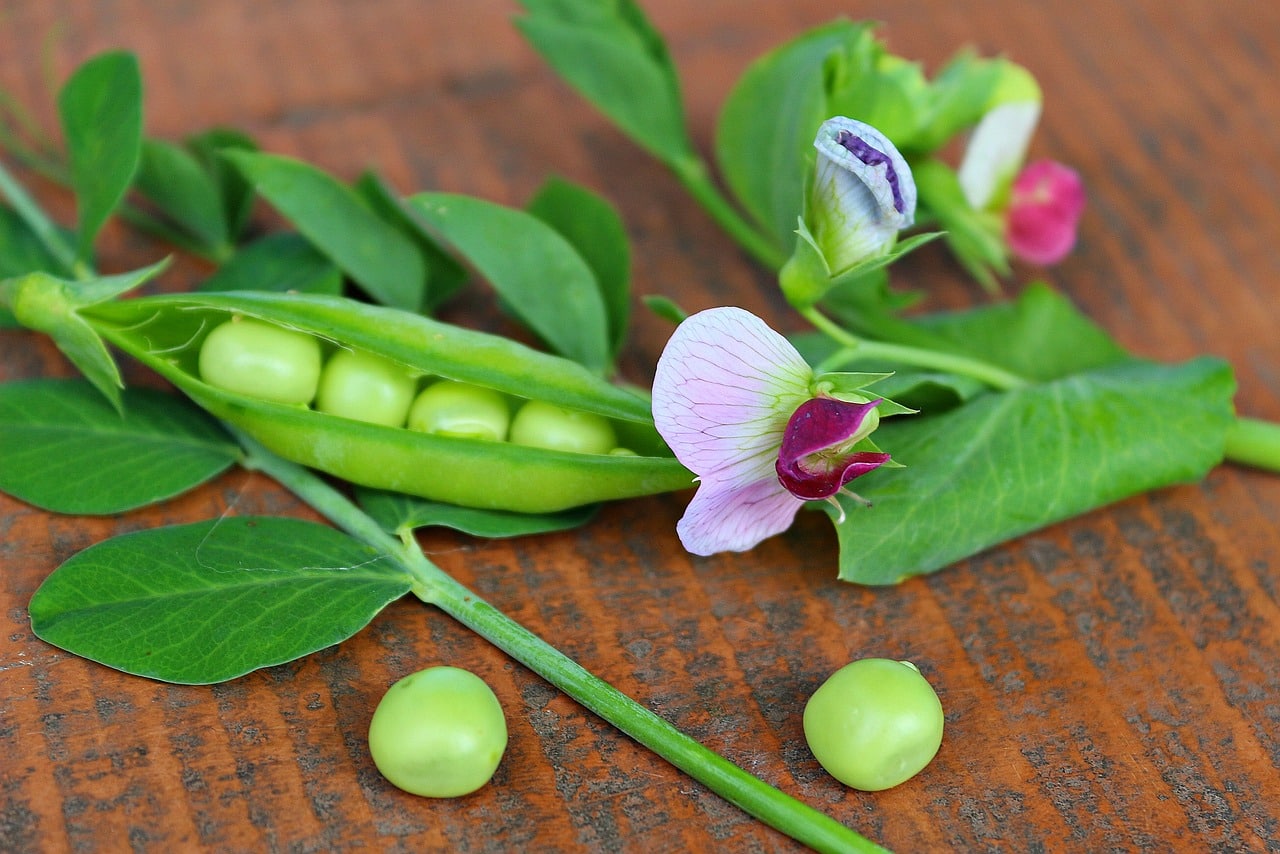 Shutterstock
Shutterstock
Peas are a great source of protein, fiber, and vitamins like B1, K, and C. They also contain iron and potassium, which help support your dog’s overall health. Green peas, snow peas, and sugar snap peas are all safe for dogs, and they make for a tasty and nutritious treat. You can serve peas cooked or raw, but be mindful of the portion size, as too many can cause digestive upset. Peas are a great option for dogs needing extra nutrients while maintaining a healthy weight.
Zucchini
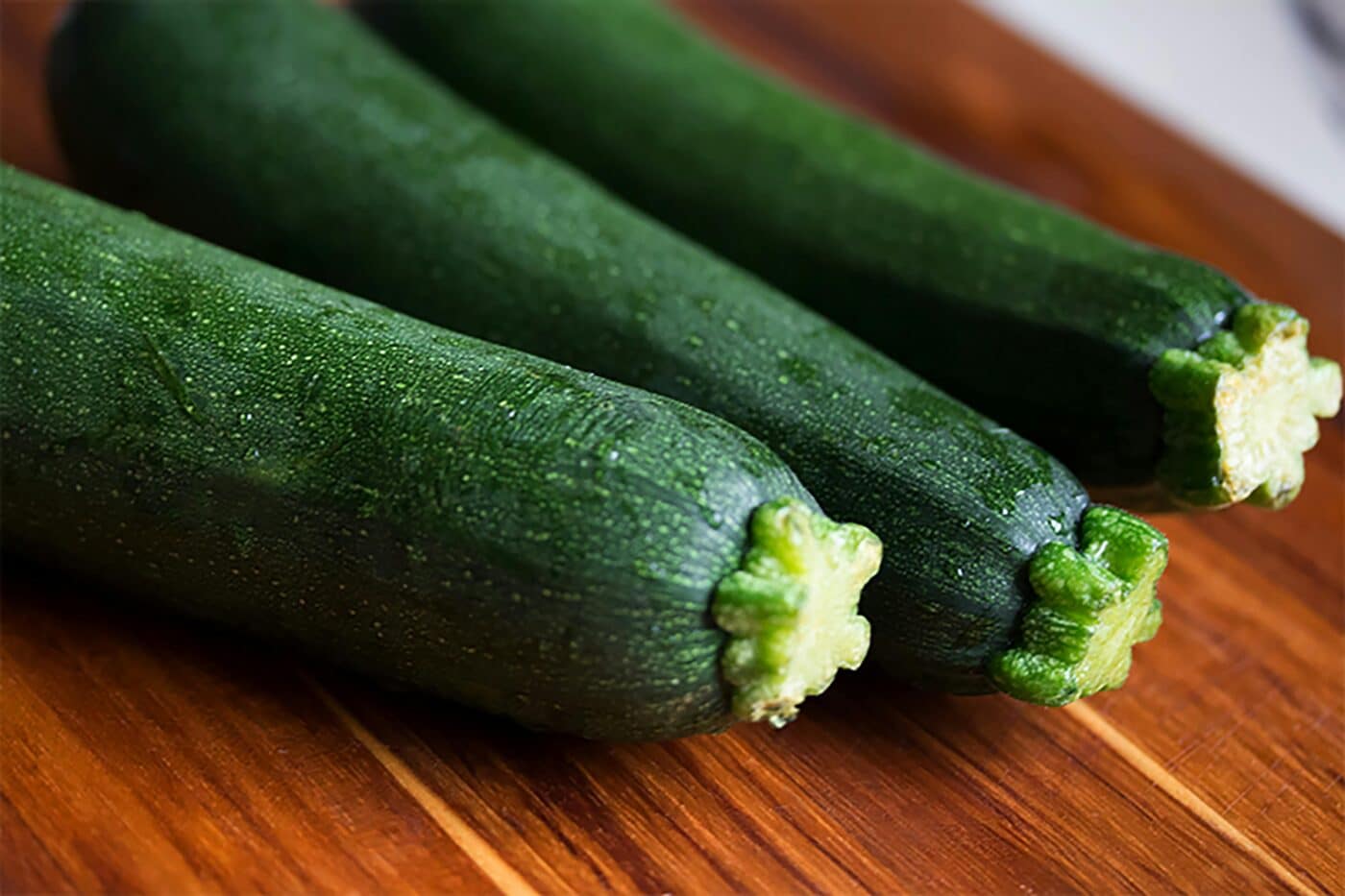 Shutterstock
Shutterstock
Zucchini is a versatile vegetable that is low in calories and provides valuable nutrients such as fiber, vitamins A, C, and B6, as well as minerals like potassium and magnesium. Zucchini is an excellent option for dogs who are watching their weight or need a low-calorie snack. You can serve it raw or cooked, but avoid adding any seasonings or oils. Zucchini is easy on the digestive system, and its mild flavor makes it appealing to many dogs.
Pineapple
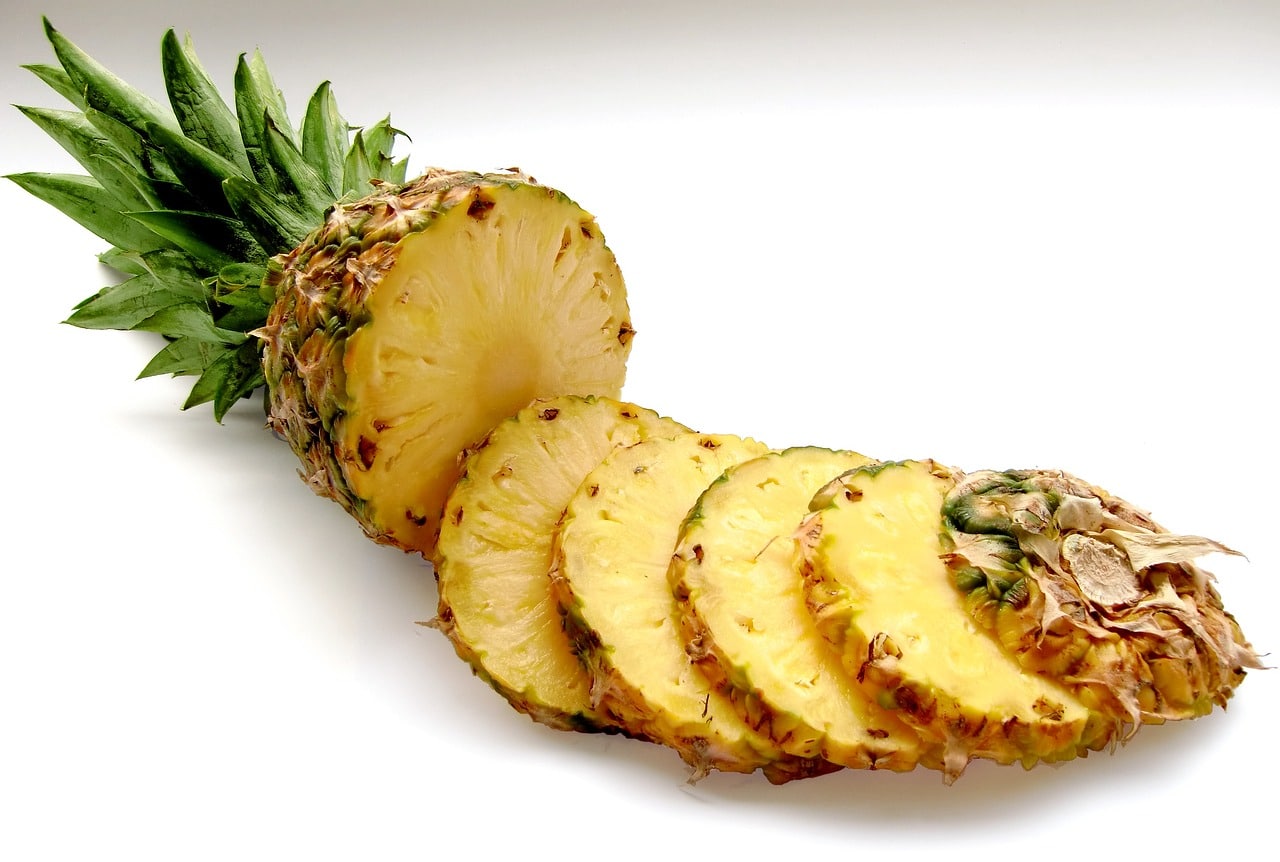 Shutterstock
Shutterstock
Pineapple is another tropical fruit that dogs can enjoy in moderation. It’s full of vitamins, minerals, and antioxidants, particularly vitamin C and manganese. Pineapple is also known to support digestion thanks to bromelain, an enzyme that helps break down proteins. However, due to its high sugar content, it should only be given occasionally. Be sure to remove the tough outer skin and core before feeding it to your dog, as these parts can be difficult to digest and may cause discomfort.
Cranberries
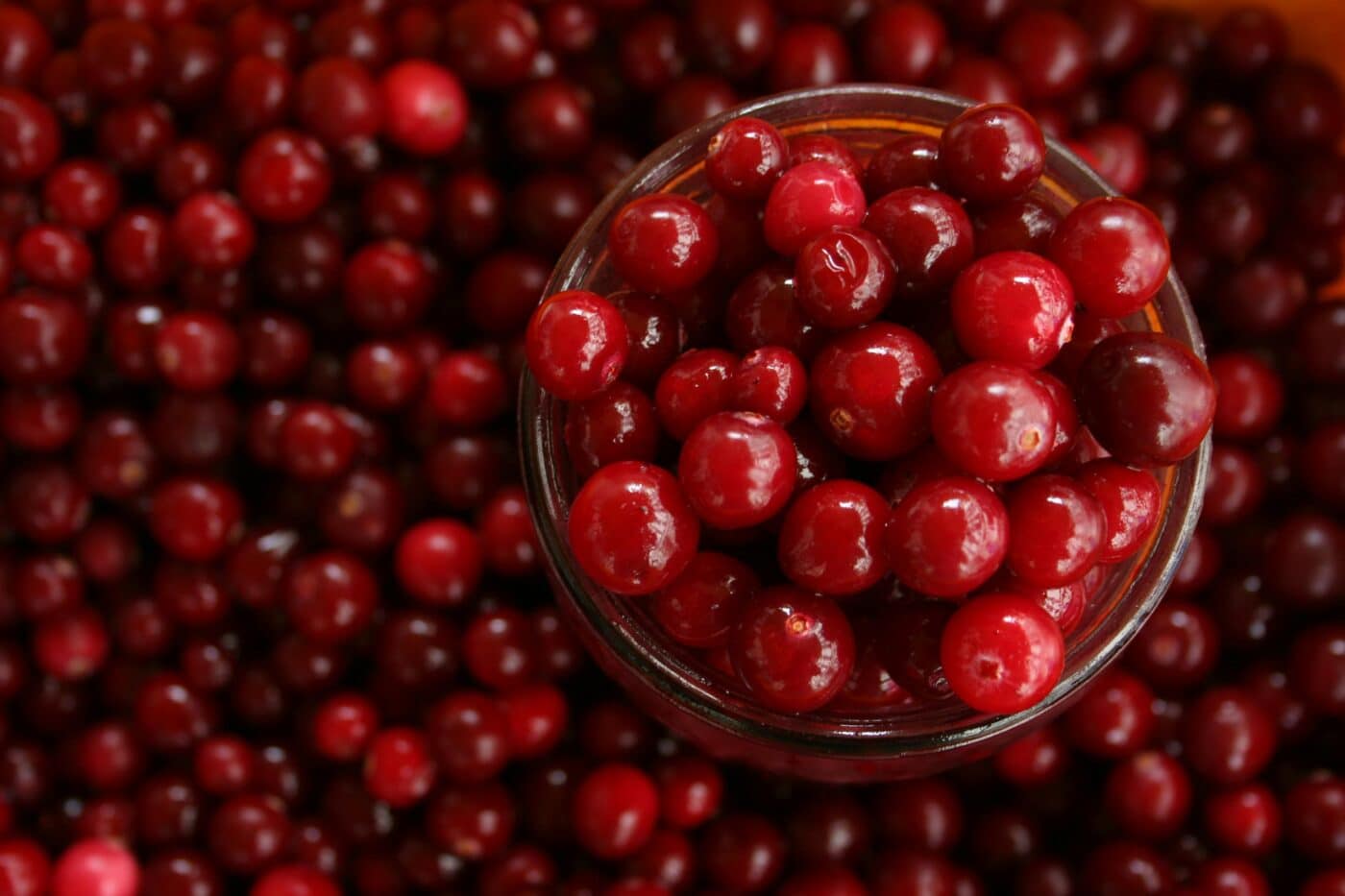 Shutterstock
Shutterstock
Cranberries are packed with antioxidants and nutrients that can support your dog’s urinary tract health. These tart berries are safe for dogs to eat and can be served fresh or dried (without added sugar). Cranberries can also help reduce plaque buildup and promote dental health. However, be cautious not to overfeed cranberries, as the acidity may cause digestive upset. Cranberries can be mixed into your dog’s food or given as an occasional treat, providing both nutritional benefits and a change of flavor.
Bell Peppers
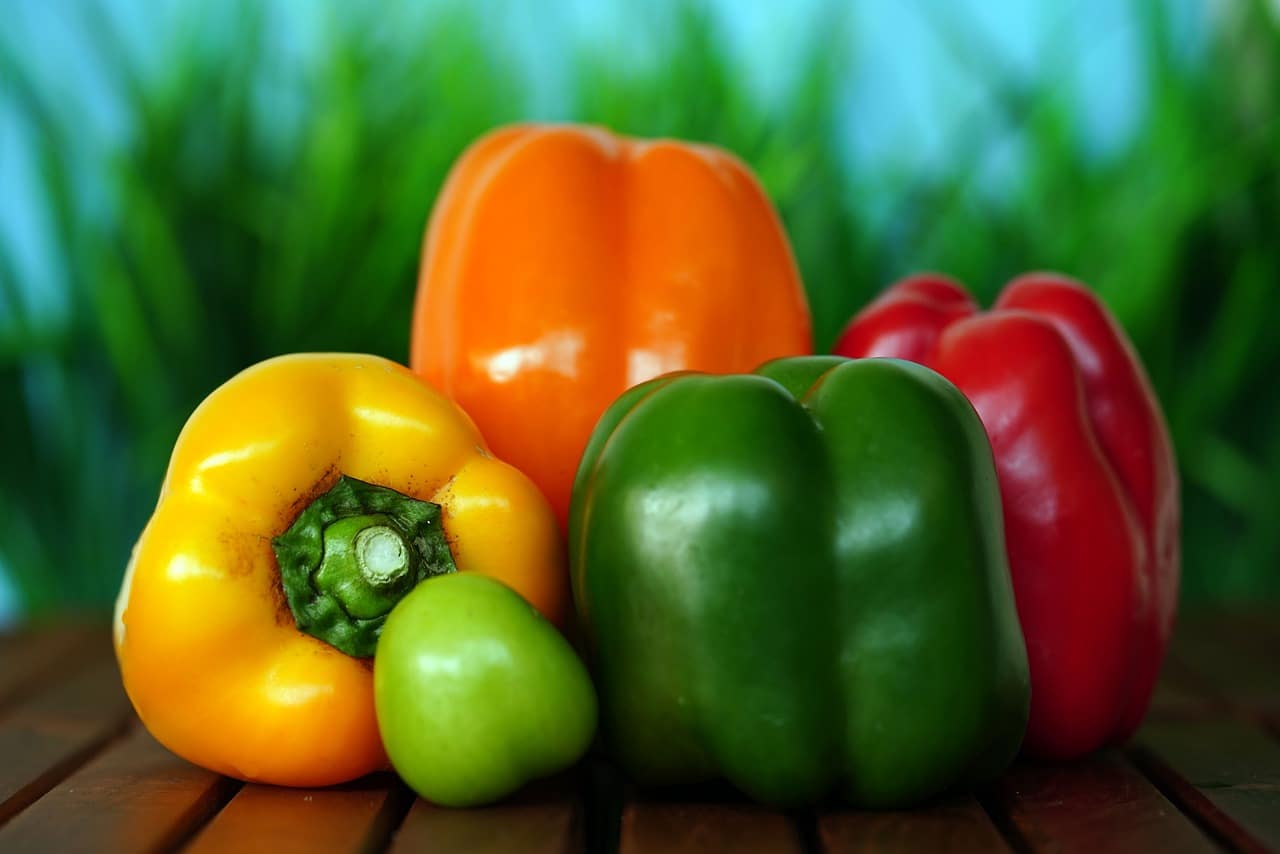 Shutterstock
Shutterstock
Bell peppers, especially red ones, are a nutrient-dense snack that can be safely fed to dogs. They are an excellent source of vitamins A, C, and E, and they provide a boost of antioxidants that help support a healthy immune system. Bell peppers are also low in calories, making them a great option for dogs on a weight management plan. You can serve bell peppers raw or lightly cooked, but be sure to remove the seeds and stem before offering them to your dog.
Strawberries
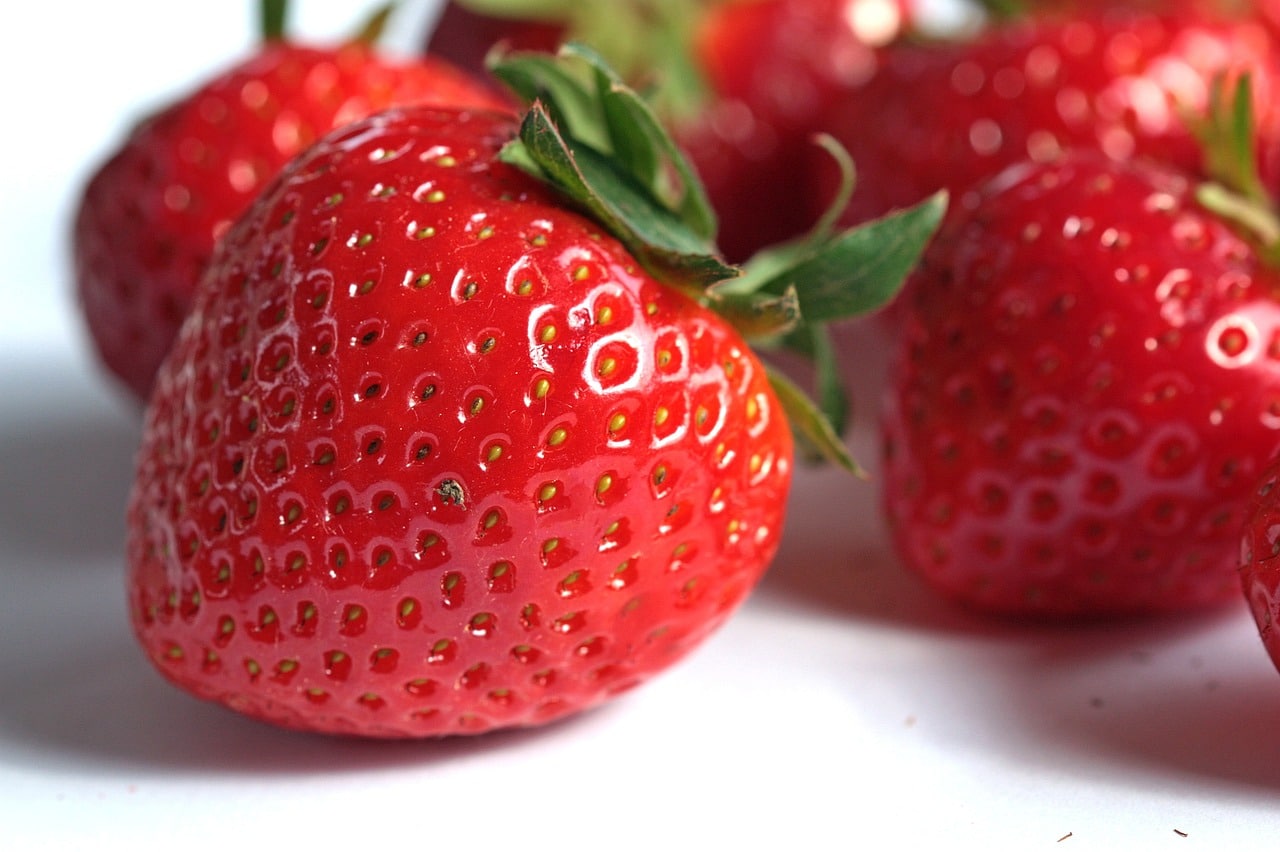 Shutterstock
Shutterstock
Strawberries are a sweet and healthy treat for dogs, packed with fiber, vitamin C, and antioxidants. These red berries can help strengthen your dog’s immune system and promote healthy skin and fur. Strawberries also contain enzymes that can help whiten your dog’s teeth. However, since strawberries are high in sugar, they should only be given in moderation. Fresh strawberries are the best option, but avoid any canned or processed varieties that may contain added sugars or preservatives.
Cantaloupe
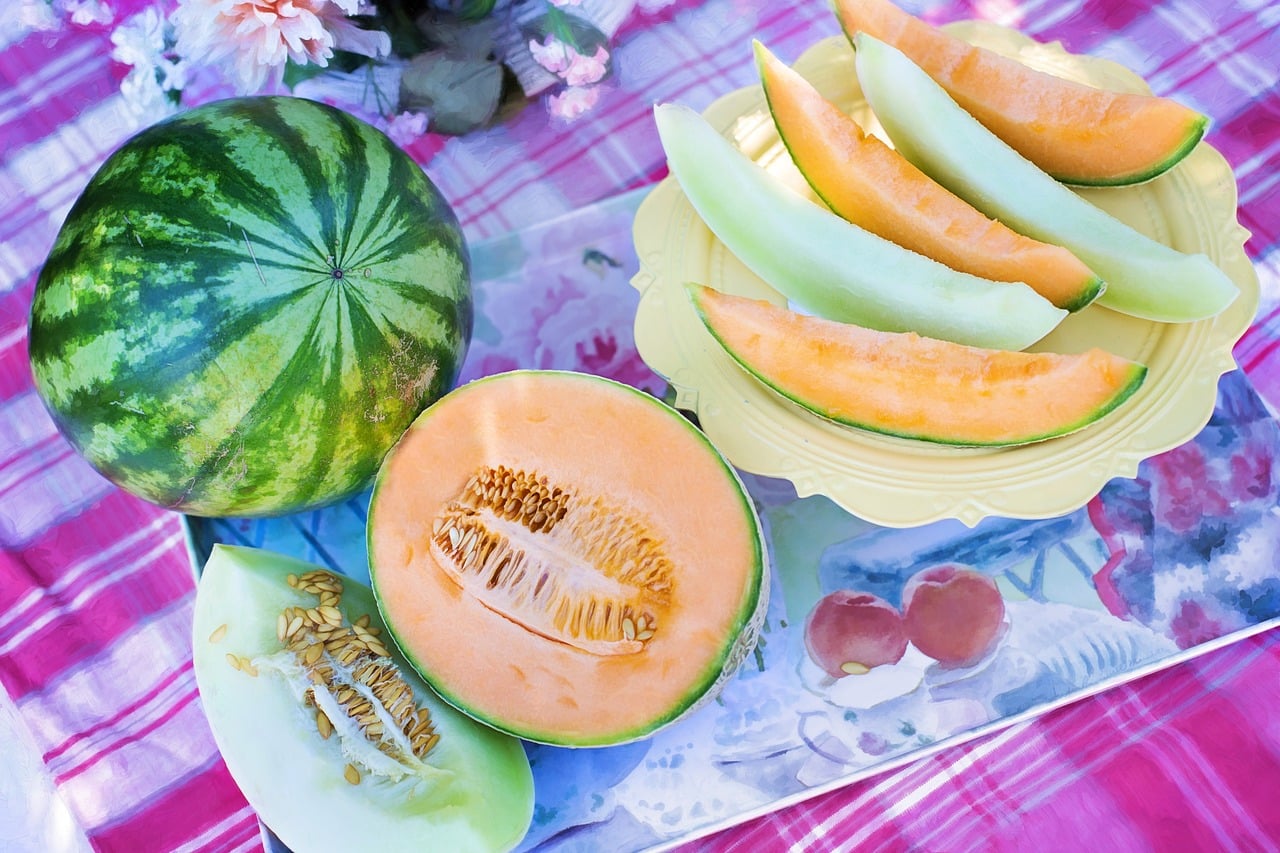 Shutterstock
Shutterstock
Cantaloupe is another hydrating and refreshing fruit that can be safely given to dogs. It’s rich in vitamins A, B6, and C, as well as fiber and potassium, making it a nutritious and low-calorie treat. The high water content in cantaloupe can help keep your dog hydrated, especially in warmer months. Be sure to remove the seeds and rind before serving cantaloupe to your dog, as they can be choking hazards. Offer cantaloupe in bite-sized chunks to provide your dog with a sweet, healthy snack.
Offering Healthy, Safe Alternatives
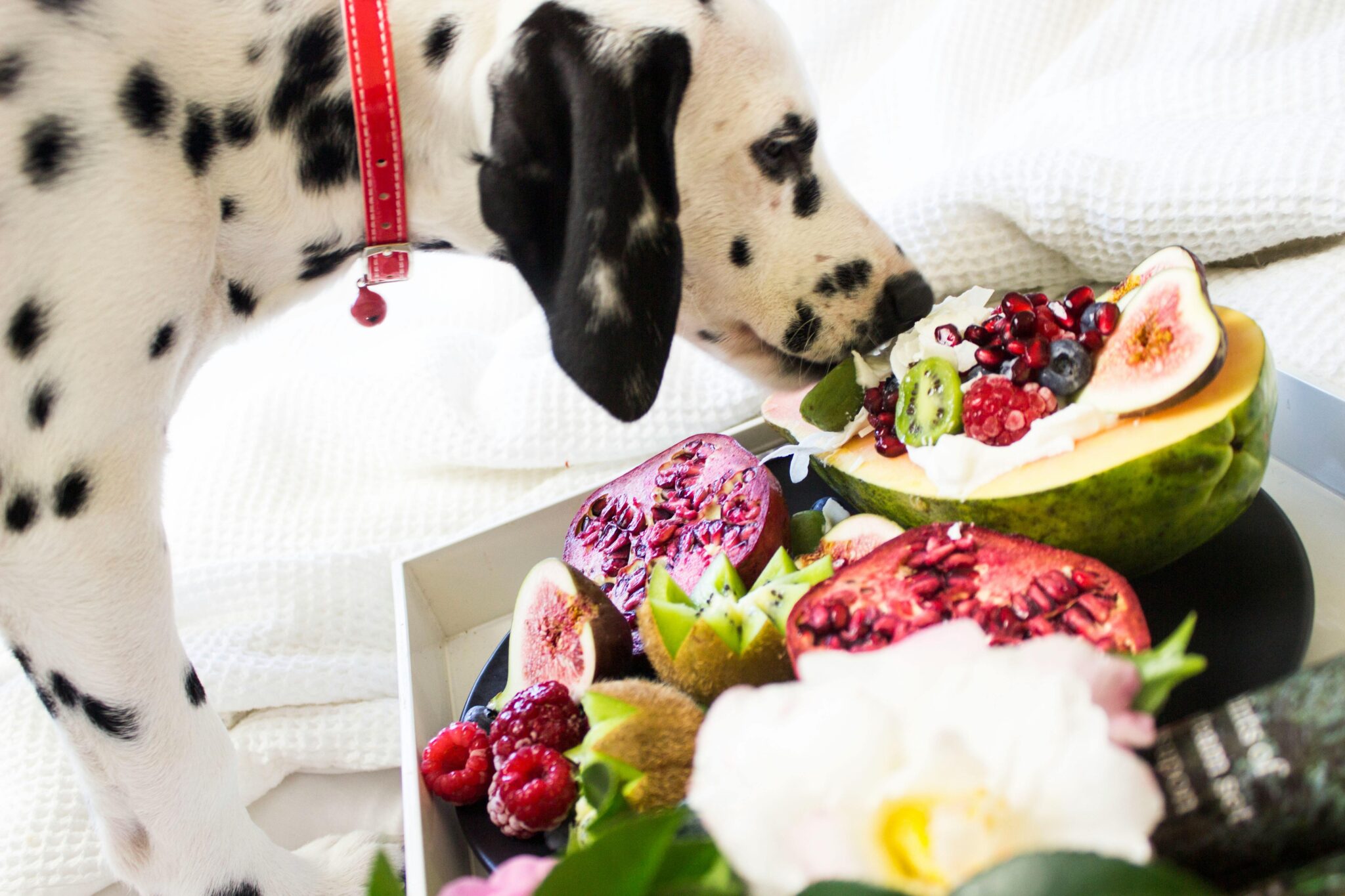 Shutterstock
Shutterstock
While dog food should remain the staple of your pet’s diet, incorporating these safe and nutritious human foods can offer variety and additional health benefits. From fruits and vegetables to lean proteins, these options not only provide essential vitamins and minerals but also add mental stimulation and enrichment to your dog’s meals. Always introduce new foods slowly and ensure they are served in moderation. By offering safe alternatives to dog food, you can keep your pet happy, healthy, and satisfied while avoiding the risks associated with harmful or toxic foods.

 1 month ago
19
1 month ago
19











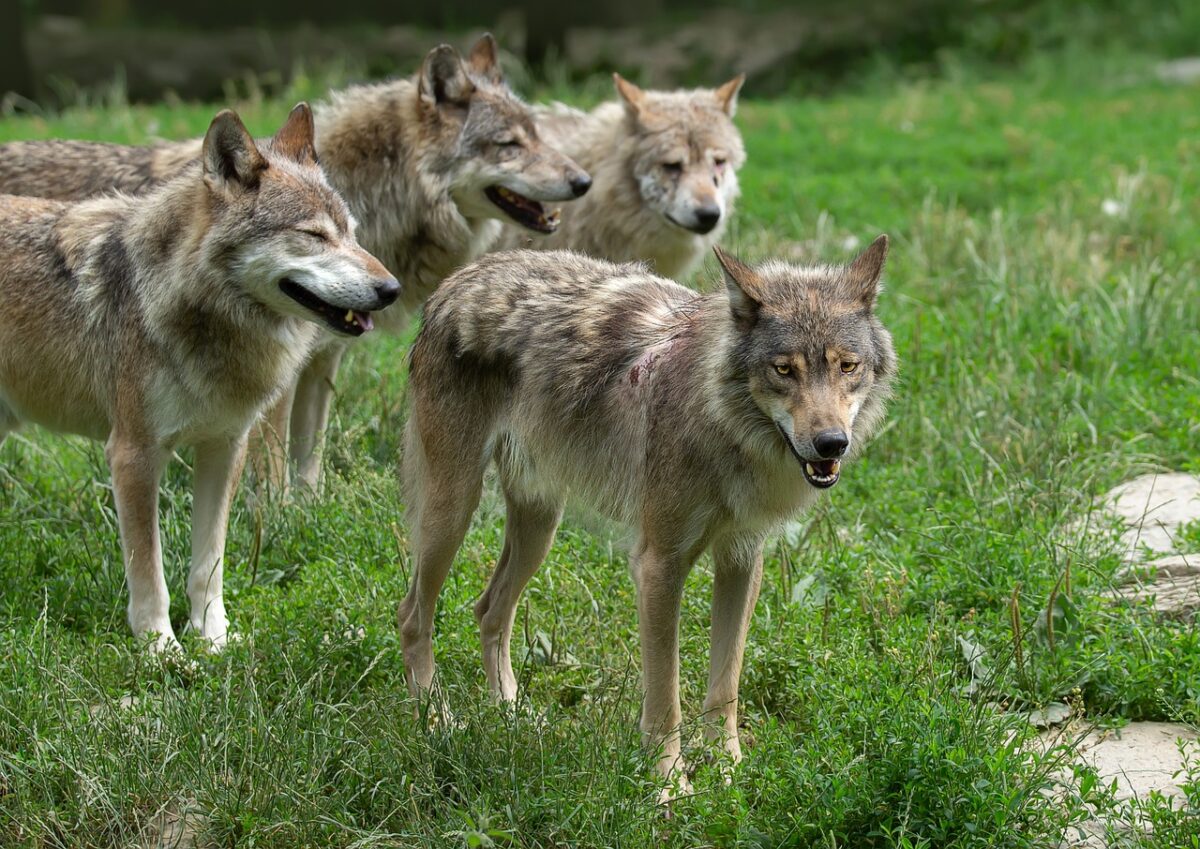






 English (US) ·
English (US) ·